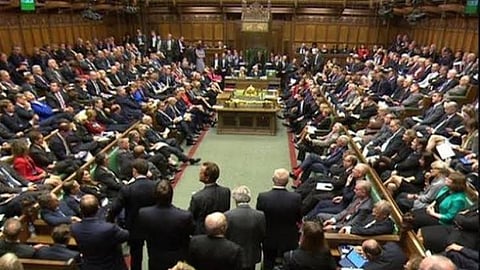

Ireland will base next month's budget for 2020 on the assumption of a no-deal Brexit, setting aside funds for vulnerable sectors and allowing the state's finances to return to deficit, Finance Minister Paschal Donohoe said on Wednesday.
Ireland presented two budget strategies for 2020 in June, a preferred option that would have seen its budget surplus grow if its neighbour leaves the EU in an orderly way, and a no-deal scenario forecasting a deficit to absorb the shock of such an outcome.
It has not drawn up a separate budget scenario forthe possibility that Britain does not leave the EU at all.
"Given the uncertainty and lack of clarityregarding the timing and format that the UK's exit will take, preparing for ano-deal scenario is the most sensible approach," Donohoe told a newsconference.
"This is therefore a budget that will be a safebudget, a careful budget. It will focus on ensuring that we have the resourceswe need at a time of change, to help our country get ready for a shock that mayoccur at the end of October or in a number of other scenarios across2020."
The shape of the budgetary package would have beenbroadly similar in either scenario at 2.8 billion euros — 2.1 billion of whichhas already been pre-committed in areas including planned infrastructurespending and increased public sector pay.
But instead of using the rest to fund increases in current spending and tax cuts, as in recent budgets, most of it will instead be targeted at the sectors most affected by potential severe disruption to trade between Ireland and Britain.
With the economy forecast to flatline next year if Britain crashes out, rather than grow by 3.3% in an orderly withdrawal, Donohoe said in June that he would allow the public finances to run a deficit of between 0.5 and 1.5% of GDP in a no-deal.
